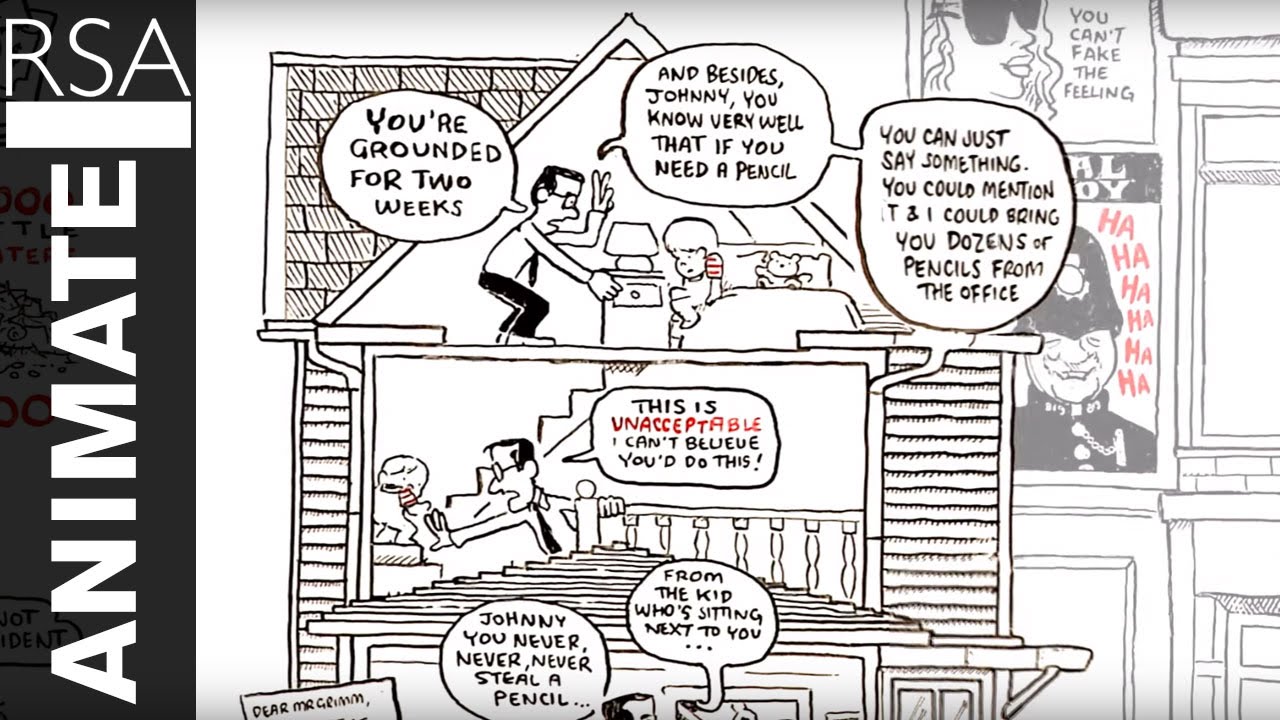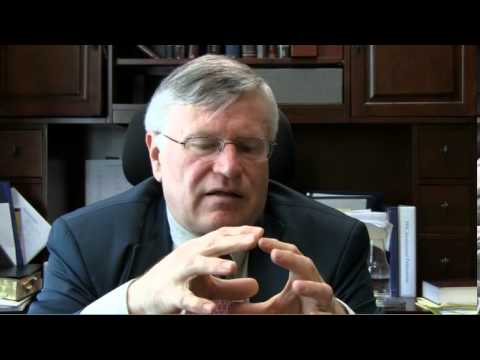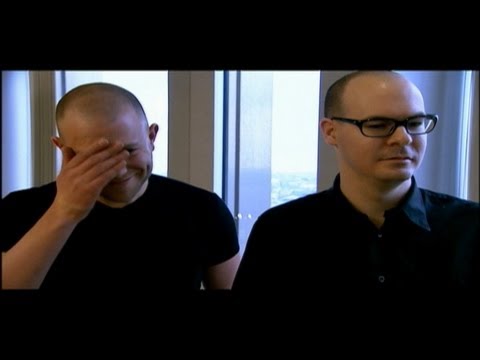Are you more honest than a banker? Under what circumstances would you lie, or cheat, and what effect does your deception have on society at large? Dan Ariely, one of the world’s leading voices on human motivation and behaviour is the latest big thinker to get the RSA Animate treatment.
Taken from a lecture given at the RSA in July 2012 . Watch the longer talk here http://www.youtube.com/watch?v=ZGGxguJsirI
Follow the RSA on Twitter: https://twitter.com/RSAEvents
Like the RSA on Facebook: https://www.facebook.com/rsaeventsofficial/
Listen to RSA podcasts: https://soundcloud.com/the_rsa
See RSA Events behind the scenes: https://instagram.com/rsa_events/
——
Produced and edited by Abi Stephenson, RSA. Animation by Cognitive Media.
The RSA
Source




Now THIS is the BIG picture….so to speak. lol
Grrr hate people using bad analogies for pirating to stealing. It's copying and it's totally different from stealing.
There are a lot of things tremendously untrue in this presentation. It is fundamentally false.
LOL@ the tv show & movie references (eg. No Dougal) 🙂
How can you even compare stealing food with downloading music? Why does this guy talk as if obeying laws and being morally correct are the same thing in the beginning? I do agree with the fact that banks have made things overly complicated so that it is easier to rationalize what they are doing. Also, little cheaters are worse than big cheaters? So the millions big corporations avoid in taxes isn't as bad as .. what?
Who knows more about rationalization than an Israeli? They commit all sorts of crimes and manage to rationalize it as a product of Palestinian hatred of Israel.
Something I've been saying for over 15 years is; "Truth will conquer corruption."… There is no time frame associated with the statement, but it will happen eventually. 🙂 ♡ ☆
Is there any way to download the drawings from the video?
Hilariously presented. 😀
You're seeing clearly.
Very well done!
Shitty analogy with music downloading though. When you download an mp3, you create a duplicate of the original. Both you and the person you downloaded from now have a copy. If you steal food from a restaurant, you have taken something, and they no longer have it. This is NOT the same.
Ariely's reasoning and sketches. Quite the unison. Subscribed.
That was brilliant!
"I'm watching you, Dick!" (Greatest whiteboard aside of all whiteboard asides.)
upvote for father ted reference
What is the name of this guy's book? What's HIS name?
Mentioning piracy, he made a fundamental mistake. He assumed his own view on the issue applies to everyone. Even if piracy was indeed stealing, (it is not, and this is not my rationalization, stealing is an objectively different concept and has completely different implications.) you can't just think of stealing as something that is always immoral on everyone's mind, independently of the context. For example, when a homeless parent steals a piece of fruit from a supermarket to feed his child, there's probably little to no rationalization going on in his head. He doesn't need to rationalize it. "my child is hungry" is not a rationalization, but a cause. He's not being dishonest with himself, he's being perfectly honest.
Although not as dramatic as not being able to feed your child, the same exact reasoning applies to the majority of pirates who really can't afford to pay for their operating systems, their music, their films. If piracy wasn't an option, literally millions of people could've never enjoyed their favorite music. Personally, coming from a poor European country, i was never able of paying for any of my music as a kid. We simply copied tapes. Without those tapes, i would literally be a different person today. Do you really think i feel even slightly bad about listening to Nirvana without paying Kurt Cobain's music label? That i need any kind of rationalization in order to look myself in the mirror? If anything, i would feel bad about myself if i had chosen to never listen to Nirvana as a kid, just because i couldn't afford it.
What if i honestly think that art and entertainment should be affordable to the majority of people? Paying $20 for a film when there are first world countries with an average wage of $300, is completely insane. Is it moral for those people to miss out on cinema just because they're not rich enough? There are millions of people who simply can't afford books. Is it moral for them to stay uneducated just because they're not rich enough? What about a talented person, who would never become a graphic designer / photographer because they simply couldn't afford $300 for their software as beginners? Do you really think they would have any problems looking themselves in the mirror?
Ha ha ha ha ha!?? Really? People think that they aren't stealing if they steal objects from work, but not money? That's silly. I know when I'm stealing and I call it that. If I make copies for personal things at work, I'm stealing and I call it that.
By the same token my employer is getting my inborn abilities and talent at a much lower price than they charge when they turn around and sell the results of my work to their customers. They are stealing my time from me, and while they can go buy more pencils, every hour I spend allowing my employer to charge more for my work than they pay me to produce it, is gone forever. So I will call both activities stealing and cheating and unfair, but I am being cheated of a non-renewable resource, my time on earth. And as an individual I am much more impacted by that loss than the company is by my stealing objects, or money for that matter.
The argument about music is being blamed on the individual, but in fact our society doesn't want to pay artists for anything and our whole culture believes that artists should be working at REAL jobs and that the production of art via their inborn talent isn't work. Capitalism as a construct posits any ingenuity and creativity, that isn't coupled in a person with a rapacious greed, should be punished and made available for exploitation by those with rapacious greed and nothing else to offer.
This is a very strange concept of mentalities that can only exist inside the mind of someone who is moral, making it rather subjective. The only practical reasoning in this video is the section about the circumstance of bending utilitarian principles, like stealing. Yet, there it is — not all situations are similar, making variables, not routes for some strange manifestation of "cheating". To illegally download has a much more simulated level of thieving, making it's moral objector weaker, making it easier for honest people to do the dishonest thing of stealing, but only in the name of morality, which is something to aspire above in any reasonable scenario, regardless. Power within the hands of the people should not be regulated, it should be respected as a right. As the world becomes more advanced, so to do the abilities of every person. Jean Baudrillard has already said in detail everything there is to be said about this topic of simulated honesty and reality, and this video is a bastardization of wiser conclusions.
Not just with bankers. This calls our entire punitive justice system to question. Religion figured out the concept of forgiveness but we don't translate it to Civil society in the least. The War on Drugs makes this even worse.
I hope Tom Brady/Patriots haters watch this video.
Two Cold war nations compete for dominance, both view the other as evil because of the many geopolitical boundaries between them. Both share the same motives, both logically should feel empathy for one another.
But, motivated not by greed, but by fear of the other, they constantly take action against one another. Escalating….
Developing weapons for their nation's defense, spying on their enemy, learning of their enemies new weapons development project, targeting spies in their ranks leaking intel on their own weapons development project, assassinating agents, and even staff members who may be associated with said project. Instigating political instability, Sanctions, threats, bribes, breaking every rule in the book, crushing insurrection, arresting rebels, exploiting corruption, while being exploited, execution, interrogation, torture… All in an attempt to preserve peace.
They are not evil, they are fighting for survival in a cruel world. But what they don't realize is that is the only motivation their enemy has to fight them in the first place.
This video looks at greed and morality, but fear is also a motivation. Our failures haunt us, and our inadequacy drives us to desperation. It instigates conflicts. Greed is not the only source for dishonesty or sin.
are we ever going to get RSA animates ever again? There are tons of small RSA talks but I find them kind of boring without any images.
nice but there no such thing has perfect oh well live your life try to be happy and dont do thing that will hurt others or yourself. other hand when it happens dont need to be religion to forgive or clean your self just make your regrets and learn your lesson then head on live try to enjoy it much has you can we live in a wonder world of earth let all the nature clear your mind from bullshit lol. but wanted to say this is cool i am pasting on ✌
Is it not more about what you think you can get away with?
The music download argument is especially inane as it's been proved over and over again that music piracy doesn't hurt sales.
The majority of sheep People don't cheat when they are in survival because they are being stolen from by that small amount of wolves… All don't feel it's cheating more because theres a feeling that those basic things are entitlements or a right. Thus why the archetype of Robin Hood is more heroic to us than a cheat, he claiming back what is rightfully the peoples. In referencing Catholic system, it is helpful to have a confident for most, counselling can provide similar effect or any context that provides a release and rememberece of inner truth or purity. Trouble is The corrupt use the Catholic system to fuel their corruption. There will always be less moral people and those with more consciousness or good moral foundation. Promoting those morals is important. But most of all people being able to access their rights… As long as the greater society is cheating people, most people will cheat. And as long as wolves overseeing the societal structure, the moral basis already is lacking and creates hypocrisy. The solution, leaders with morals, financial system with morals, fairness and respect to everyone equally. When the majority of people are provided for they are more likely to share and be generous. That study and those talked should go hand in hand with this.
Communication is as well key to counter the seemingly increasing amount of dishonesty. If a person finds an environment that shall allow him/her to disclose his/her doing and still accept him/her, then that person shall have a push to introspect upon his/her actions and work to create changes towards the better.
The presence of a non-judgmental environment will as well allow people to point at people's dishonesty without fearing a backfire. Many factors come into play but I think these are key as well, and as the speaker concluded that we all have the potential to be dishonest, and by that, I think that altering the surrounding to keep this dishonesty dormant and not allow it to unleash is the best way to counter it.
But how do you change society?
this is wonderful and thought provoking,….thank you
Such ":talks" provide a livelihood for individuals and groups who operate under the premise of human resource managers, applying language, culture, ideology and fancy footwork to dance around issues and minds to achieve more yield from human work forces.. So long as the weight (whether comprised of questionable data, colorful charts or catchy verbiage) is directed downwards, to pack in and press out even more profits from the bottom rungs. While propping up higher levels of the system and concealing its grave fault-lines.
Creating a situation where disgruntlement is expressed though vague and emotional (often time destructive) outbursts (arriving from the bottom), while articulation is only ever found when it is working to prop up the system (arriving from upper middle aspirants who must play their cards right to reach the top),
Even if this means robbing and stealing, or else lecturing over people who rob and steal, as a means to a livelihood. This is a product of very precise and prolonged system of social engineering, indoctrination, resource allocation, human management and organization, that quite likely involves entrapment and instigation, of both the most overt and subtle natures, inherent in people as much as they are in systems.
Although which gave rise to which, is unclear. As both framework and framed cooperate in solidifying the entire process
Nomi Prins, a former high level banking manager at Goldman Sachs, says that banksters will do whatever they can get away with and not go to jail. So, she says the same thing…change the consequences. No bankster was fired when they brought the whole economy down and had no problem with the rest of us paying their casino bill. Not ONE arrested and at the least estimate ultimately near a trillion out of our pockets, already emptied by central bank inflation skimming. How do we expect that honesty will be the result when DISHONESTY is not only tolerated but actually rewarded hugely? The same is true for our Congress. They do what they can get away with and they get away with being bought off by banksters and others who make a lot of money, much of it dishonestly. They get away with rewarding their friends with big kickback contracts and favors….often leading to war and death of millions. To them, no problemo, and apparently no problem to us either since we send them back to Congress over and over. An ignorant and arguably stupid population is about to put one such person into the White House in the form of Hillary Clinton. It is almost impossible to believe that near 50% of the people want such a criminal and that among her followers, a big chunk want her to run EVEN IF SHE IS UNDER INDICTMENT!!
How much dishonesty can a society absorb? Well, we're at saturation right now, waterlogged and sinking. I wonder what this video-maker would say about the morality of inattention to wrong-doing? Probably, "Did you think you would get away with it?" Apparently we think we will, just like the banksters and our Congressmen, but the buck has got to stop somewhere, and that somewhere is usually US.
Greed is the incentive for corruption and what promotes it in society, Change the incentive, and corruption will be affected as well. Greed is the desire to benefit oneself over and above anyone else. It's selfishness in its pure form, and an expression of being anti-social.
Greed can only be overcome when the individuals mature to an understanding we as individuals live to pursue happiness, and this state of being is the result of a balanced set of circumstances where everyone in the community has enough to satisfy their basic needs, and have the time and wealth to pursue any other spiritual needs they may have. In other words, in the true sense of achieving the happiness humans are naturally designed to pursue. In the ultimate balance, a conscious being can only get it when she/he knows everyone in the community has achieved the minimum level of material and spiritual satisfaction. This is called CONSCIOUSNESS and unless we attain it, we could never be completely satisfied and happy in a sustainable way.
This is why Democracy and Capitalism can never truly complement each other, because capitalism inherently produces a large sector of materially insecure people, while democracy demands CONSCIOUSNESS from every member of society to function properly. Members of society who are conscious of the social disparities can't be truly happy while knowing a great number of fellow community members are in distress.
"We" didn't create new rules to scoop the financial market and it wasn't us who let "us" banksters get away with trillions. It was "them", the banksters and their corrupt friends in the media and politics.
At last. RSA comes out.
That was a cool video. I like how he pointed out that different actions lend themselves more to rationalization. I also like the concept of the "WTH Effect."
-Jade
Dr. Ariel has completely overlooked a bizarre peculiarity embedded within his utterance, one articulated to expresses the features of the problem of dishonesty which he (rightly) believes requires a workable and efficacious solution. What follows below is the typed-out verbatim statement Ariel gave to describe the necessity of formulating a highly efficacious and workable solution to satisfactorily redress the problem of dishonesty:
"This is something religion figured out [i.e. that habitual confession of one's dishonesty to a highly esteemed person vested with the power to forgive absolutely the confessor's sin of dishonesty]; the question is: How do we put it into civic society?"
The professor fails to recognize that the semantic content of the terms composing the initial (independent) clause of this complex sentence he uttered actually contains the very solution to the pressing socio-economic problems produced by rampant, almost ubiquitous practiced dishonesty, a massive burden upon society, economically and otherwise, despite virtually every instance of dishonest behaviour relatively minor in its effect (the aggregated effect of each of the innumerable instances of dishonesty and their effects is, therefore, massive). The solution is located in Ariel's statement of the need for a solution:
"This is something religion figured out [i.e. that habitual confession of one's dishonesty to a highly esteemed person vested with the power to forgive absolutely the confessor's sin of dishonesty]…"
We need to repent from our sin by confessing it; confessing our lies and any other deceptive behaviour to the Lord Christ Jesus, asking for His forgiveness and repenting from this pattern of sinful behaviour. But God only hears those He calls His children: Christians, who God the father adopts as sons and daughters, having been born anew through sincerely authentic repentance of their rebellion against God, and submitting their will over to Him in exchange for the Lord's Will, this accomplished only by placing one's faith in Christ Jesus as Lord and Saviour.
I'm tired of attempts to make an analogy between physical property and intellectual "property". With physical property you are taking something away from another person.
Everything can be rationalized but that doesn't make it honest. Honesty is forbidden in our society – strictly forbidden. "The world sucks and it's depressing" – "What?! Must be you! Learn to be ignorant, learn to rationalize and if both fails – heck, drink alcohol or take some others drugs, pills, etc. or wear a costume, buy or gain a title." – It's hilarious!
I think with the piracy example, a lot of people kind of missed the point: it wasn't so much about whether piracy is good or evil, it's more about how even the average person can rationalise any action very easily if they can't or won't directly look at the consequences of said action. You couldn't really steal food in a restaurant or walk away without paying because the waitresses and chefs are right there, the people who might end up going hungry if you do this bad thing. And with that constant reminder weighing on your sense of morality, even you wouldn't be able to believe in your own excuses. Your guilt would overwhelm that capacity to rationalise your dickheadedness away.
(Although to be fair, I would have gone with something like cyberbullying/internet death threats as an example of something genuinely bad where you can't see the person who is going to be hurt by your actions and therefore making it much easier for you to bullshit your way into believing that what you're doing is not a horrifying deal breaker).
It's hard to understand how to connect between rationalization and the money, bank thing which came out at the end of the story but there were some interesting example in this video
How would you proposed to change the incentive structure?
ayy where my Marxists at?